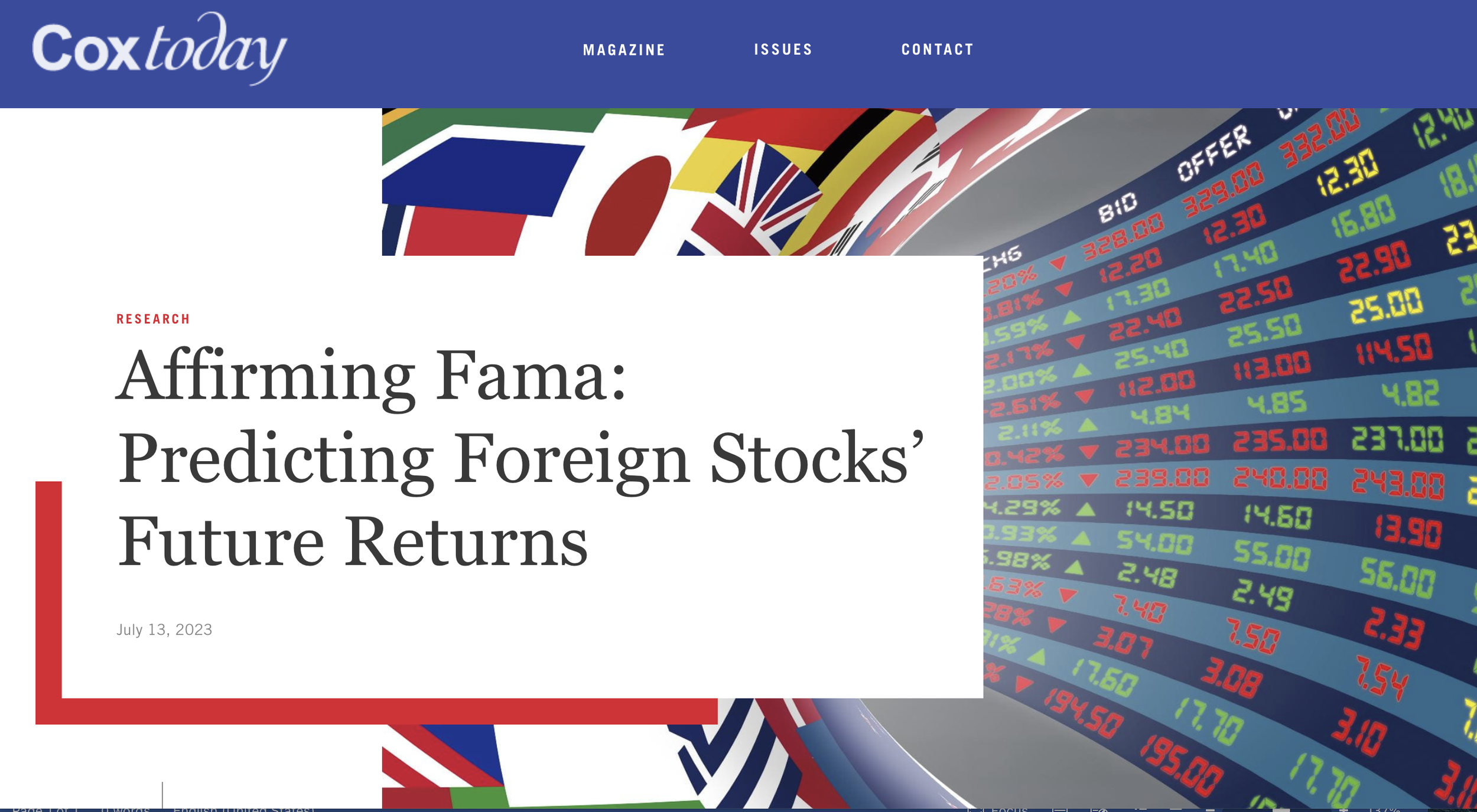In profiling new finance research, the inspiration of Eugene Fama speaks. It’s a bit beautiful minds really. The first few paragraphs follow:
“Affirming Fama: Predicting Foreign Stocks’ Future Returns”
What dictates returns in foreign stocks? Is it driven by corporate events, a country’s market dynamics, or the attributes of the company? In a novel study of foreign stocks, SMU Cox Finance Professor Feng Zhang and coauthors upend the finance literature. “A motivation for our paper was to see whether firms earn abnormal returns after major corporate events,” says Zhang. “We’re testing whether information is understood by the market, in the manner of Nobel Prize winner Eugene Fama, renowned for his efficient markets hypothesis.”
In an international context, the authors developed the most comprehensive analysis to date about whether returns are “abnormal,” or unusually positive or negative, after corporate events. Many studies consider some countries, certain corporate events and specific firm characteristics. In this study, a massive undertaking, Zhang and coauthors analyze nearly 52,000 stocks across 58 foreign countries from January 1996 to December 2020. The study’s events include share repurchases, dividend initiations, stock issuances, mergers and acquisitions, and stock splits.
New normals
Importantly, while academic research often cites what an “abnormal” return is, they ask what is normal? “That’s hard to get at,” Zhang says. Prior literature he notes, when discussing what is normal, often reveals it through simple analysis. However, the authors use a much more comprehensive set of variables, utilizing 14 firm characteristics, from which to benchmark future returns. Examples of firm characteristics include size, debt, asset growth and liquidity.
It gets more interesting. Read the Cox piece or get in the weeds with the interview.


